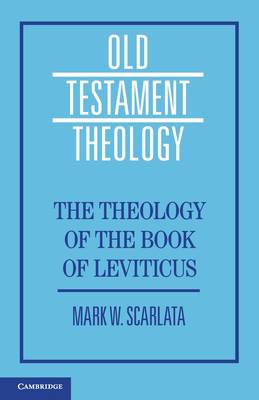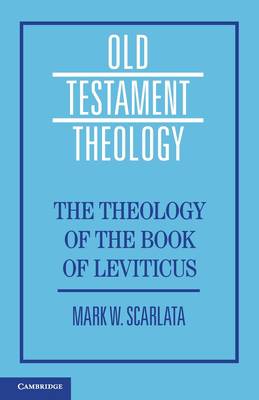
Bedankt voor het vertrouwen het afgelopen jaar! Om jou te bedanken bieden we GRATIS verzending (in België) aan op alles gedurende de hele maand januari.
- Afhalen na 1 uur in een winkel met voorraad
- In januari gratis thuislevering in België
- Ruim aanbod met 7 miljoen producten
Bedankt voor het vertrouwen het afgelopen jaar! Om jou te bedanken bieden we GRATIS verzending (in België) aan op alles gedurende de hele maand januari.
- Afhalen na 1 uur in een winkel met voorraad
- In januari gratis thuislevering in België
- Ruim aanbod met 7 miljoen producten
Zoeken
€ 31,45
+ 62 punten
Uitvoering
Omschrijving
Leviticus is often considered to be one of the most challenging books of the Bible because of its focus on blood sacrifice, infectious diseases, and complicated dietary restrictions. Moreover, scholarly approaches have focused primarily on divisions in the text without considering its overarching theological message. In this volume, Mark W. Scarlata analyses Leviticus' theology, establishing the connection between God's divine presence and Israel's life. Exploring the symbols and rituals of ancient Israel, he traces how Leviticus develops a theology of holiness in space and time, one that weaves together the homes of the Israelites with the home of God. Seen through this theological lens, Leviticus' text demonstrates how to live in the fullness of God's holy presence and in harmony with one another and the land. Its theological vision also offers insights into how we might live today in a re-sacralized world that cherishes human dignity and cares for creation.
Specificaties
Betrokkenen
- Auteur(s):
- Uitgeverij:
Inhoud
- Aantal bladzijden:
- 294
- Taal:
- Engels
- Reeks:
Eigenschappen
- Productcode (EAN):
- 9781108970112
- Verschijningsdatum:
- 7/08/2025
- Uitvoering:
- Paperback
- Formaat:
- Trade paperback (VS)
- Afmetingen:
- 140 mm x 216 mm
- Gewicht:
- 340 g

Alleen bij Standaard Boekhandel
+ 62 punten op je klantenkaart van Standaard Boekhandel
Beoordelingen
We publiceren alleen reviews die voldoen aan de voorwaarden voor reviews. Bekijk onze voorwaarden voor reviews.









